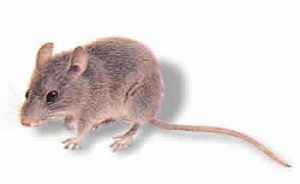The Health Risk of Rodents
They surprise us by suddenly appearing, tiny eyes and long tails, squeaking as we scream. Just the appearance of rats and mice can scare us. The diseases they carry on their bodies and produce from their urine and droppings are just as frightening.
Rodents are known to carry at least 10 different kinds of diseases, including murine typhus, salmonella, rat-bite fever, bubonic plague and bacterial food poisoning, all of which can cause severe illness. Hantavirus, another disease carried by rodents can progress to Hantavirus Pulmonary Syndrome (HPS), which can be fatal. Cases of HPS occur sporadically, usually in rural areas where forests, fields, and farms offer habitats for rodents. Hunters and campers have been known to contract HPS when they make camp in areas that have been infested with mice. Deer mice, cotton rats and rice rats in the southeastern states carry the virus.
Keeping rodents at bay helps reduce the threat of illnesses they may spread. Here are some important things you need to know about rodents:
- Block access points like holes around plumbing pipes, spaces in eaves and around doors and windows to keep rodents out of homes and sheds. Rats can enter a building through holes half an inch wide; mice can enter through holes one quarter of an inch wide.
- Rats and mice tend to enter homes in search of food and shelter and will eat any kind of food that people eat. Store food in airtight containers. Rodents can gnaw through cardboard boxes and plastic packages.
- Rodents can contaminate 10 times as much food as they eat, with urine, droppings and hair. Discard any food that may have come in contact with rodents.
Keeping rodents out of your home is one of the best ways to avoid the illness and disease that they spread. Massey Services’ Pest Prevention program will prevent these pests from gaining access by identifying and eliminating areas they may be using to get inside your home. Contact Massey for a free inspection today and avoid these frightening encounters!